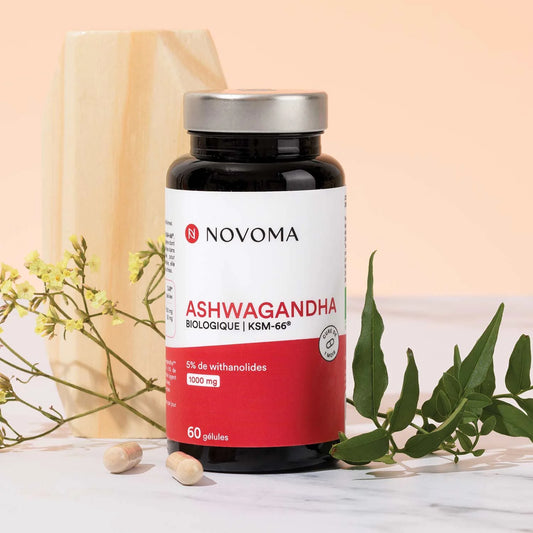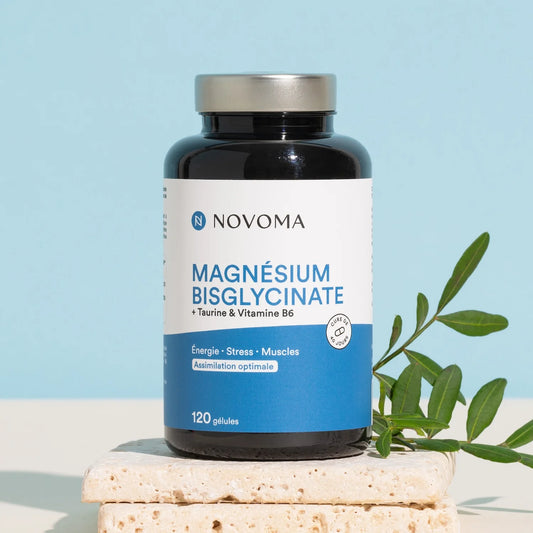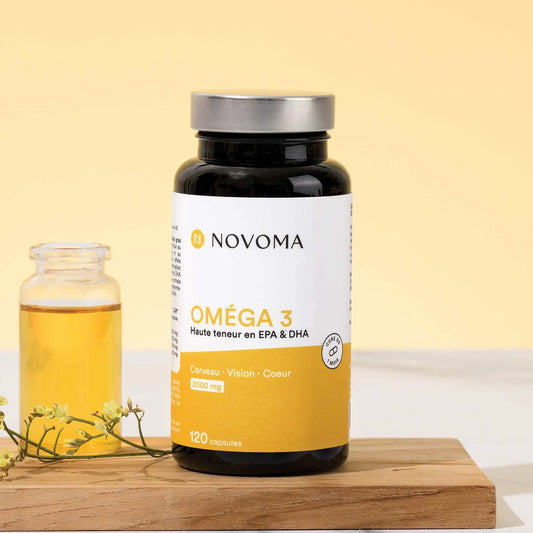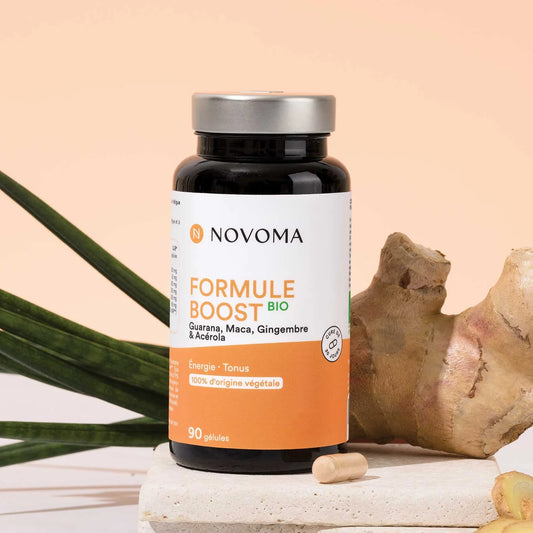
How to combat stress: natural solutions, tips and supplements
💡Key takeaways
59% of French people say they will be stressed in 2025
Quality sleep, physical activity, and social interaction naturally reduce stress.
Meditation and yoga calm the mind through breathwork.
A diet rich in magnesium, vitamins C, D and omega-3 supports nervous system balance
Novoma dietary supplements effectively complement these natural approaches
Summary
Tension Constant racing thoughts , racing thoughts , and mounting nervous fatigue ? You're not alone. According to an OpinionWay study for the Ramsay Santé Foundation , nearly 6 out of 10 French people report feeling stressed by 2025 (1) . Between the constant demands of work, family obligations, and our personal projects, our nervous system rarely gets a break.
However, this state is not inevitable: there are natural and effective solutions to combat stress and regain a true balance in daily life.
Discover with us how to implement concrete strategies that really work: diet , physical activity , technique of relaxation , wellness routines and dietary supplements .
Ready to find your inner peace? 🌿 Let's go!
Understanding stress: causes, signs and impact on well-being
In a fast-paced world, stress creeps into our lives uninvited. While it can sometimes be a driving force, repeated stress exhausts the body and weakens emotional balance.
The origin of stress
Stress is a natural reaction of our body to a situation perceived as difficult or threatening. To cope with it, it releases two key hormones: cortisol and adrenaline .
These hormones trigger a series of physical reactions designed to increase alertness , mobilize energy , and prepare the body for act quickly.
Difference between acute stress and chronic stress
Acute stress is temporary . Once the event has passed, hormone levels return to normal and the body regains its balance. This short-term stress is natural and mostly beneficial: it mobilizes our resources to prepare us to face challenges and temporarily improves our performance.
We speak of chronic stress when this response becomes permanent . The body remains in a constant state of alert , without a recovery phase. This state depletes energy reserves and disrupts sleep, digestion, and the body's natural defenses.
Effects of stress on sleep and energy
Prolonged stress particularly affects sleep. High cortisol levels , repetitive thoughts , and muscle tension cause difficulty falling asleep, nighttime awakenings, and shallow sleep.
A vicious cycle begins, and lack of rest further diminishes your ability to manage stress. The result? You're exhausted, irritable, and have trouble concentrating. 😴
✓ In the long run, chronic stress causes mental and physical exhaustion .

Natural solutions to effectively combat stress
To effectively combat stress , focus on the three pillars of well-being : diet, physical activity, and relaxation. But before exploring these natural solutions , start by reducing the sources of stress themselves.
Identify and limit sources of stress
It's time to take stock:
-
Identify the situations that keep your body on alert : toxic work environment, complicated relationships, too many responsibilities.
Avoid these situations whenever possible : set clear boundaries, delegate, learn to say no, establish your priorities, etc.
While some situations are unavoidable, take a step back : stress often stems from the meaning we attribute to things. Putting things into perspective helps reduce the emotional impact of events.
Is it raining? Are you late? Is your colleague criticizing you? Who cares? Not you!
Anti-stress diet and micronutrition
Certain anti-stress foods influence our ability to combat stress . They support the nervous system and the production of neurotransmitters such as serotonin.
👉 Magnesium : 🥜
It participates in more than 300 enzymatic reactions and contributes to the normal functioning of the nervous system.
-
Sources: seafood, cocoa, almonds, walnuts, seeds
👉 Omega-3s : 🐟
They support brain function and regulate mood
Sources: oily fish, flax and chia seeds, walnut oil
👉 Vitamins : 🍊
Vitamin C: supports immunity and vitality
Vitamin D: plays a role in nervous system balance
✓ Limit caffeine, alcohol and fast sugars which accentuate nervousness.

























